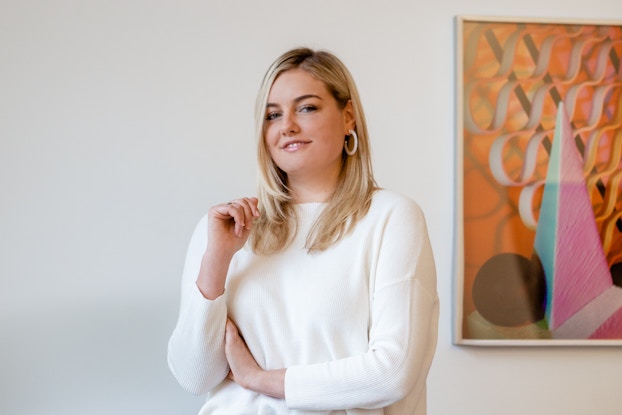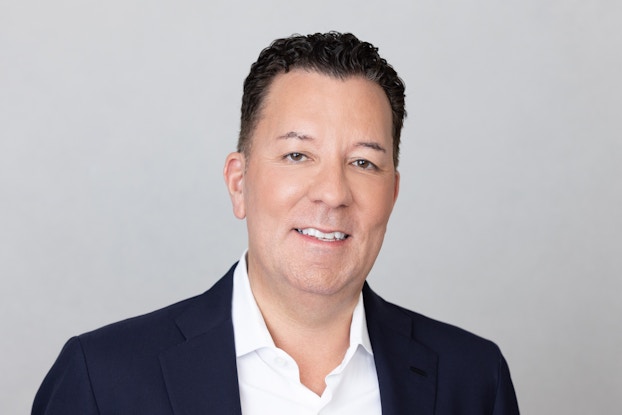
Three fundraising tips for startups, from the founders of Bubble Goods, Uwill, and Commons:
- Develop years of experience in the same or parallel industries as your startup, so you can know which mistakes to avoid when fundraising.
- Be bold. It might be outside many founders’ comfort zones but it helps when expanding existing networks with a view toward raising capital.
- Run a tight ship. Oversubscribing to capital might result in the loss of control and equity within your own startup.
Startup founders know that even the most promising ideas might not amount to much without adequate funding at crucial junctures of growth. Back-of-the-napkin strategies need monetary sustenance if a founder is to endure the trough of disillusionment and growing pains that come with scaling a new business. Fundraising for startups is especially challenging because there’s no fixed prescription for success.
For this feature, the founders of Bubble Goods, an online food marketplace; mental health platform Uwill; and climate impact app Commons shared with CO— the inspirational fundraising strategies that worked to move their ideas from concept to fruition and beyond.

Bubble Goods has raised $1.4 million so far: ‘Fundraising is like dating in a way where the easier it is, it just kind of clicks and takes off.’
Jessica Young, Founder and CEO
Jessica Young half-jokingly advises people to not launch a startup in the middle of a pandemic. But the surge in online grocery retail during the immediate aftermath of COVID-19 (in 2020, online grocery sales jumped 103% year-over-year, according to Adobe) might have been a shot in the arm for her startup, Bubble Goods.
Young self-funded and launched Bubble Goods in June 2020 as an online marketplace for customers to discover and shop for independent food brands across the United States. When the adoption of online groceries skyrocketed during the shutdown, Young took it as an opportunity to lean in.
Having experience in the food space—Young was Director of Operations and Advisor for plant-based meal-delivery service Daily Harvest—helped build her network and cultivate a few mentorships along the way. These factors in turn helped raise funding. Also a big help: a check from Sequoia Capital. “It wasn’t a ton of money but a lot of validation that made fundraising a little easier,” Young said. Bubble Goods has raised $1.4 million in a pre-seed round by Sequoia Capital (Scout Fund), Constellation Capital, Color Capital, Banana Capital, and supermodel/entrepreneur Karlie Kloss.
Fundraising is like dating in a way where the easier it is, it just kind of clicks and takes off. If you trip over your words and there’s a weird vibe, that means it’s not working and it’s time to cut those conversations and move on.Jessica Young, Founder and CEO, Bubble Goods
A self-labeled introvert, Young finds fundraising to be a beast. Especially in the early days when there were just a few products on the site, she found it difficult to make investors see the potential. Fortunately, Young could readily identify when fundraising pitches were not working. Pitch conversations that take too long are likely going nowhere, she realizes. “Fundraising is like dating in a way where the easier it is, it just kind of clicks and takes off,” Young said. “If you trip over your words and there’s a weird vibe, that means it’s not working and it’s time to cut those conversations and move on.”
But Young also knows when the “weird vibe” in pitch talks can be solved by bringing an additional point of view to the table. As an example, when chatting with a potential investor, Young expanded the conversation by including a current investor in the talks. Having that additional point of view in the room helped cinch additional dollars. Don’t be afraid to lean on your network for the help you need, including to ask for introductions, Young advised. “Most people are willing to share information and help connect the dots,” she said.
Persistence is a key ingredient in fundraising. “Entrepreneurship is a marathon, not a sprint—almost everything is going to take much longer than you thought,” Young said.

Uwill has raised over $35 million: ‘If you let yourself lose too much money, you’re allowing someone else to own too much of your companies.’
Michael London, Founder and CEO
Michael London has pretty much done it all in the field of education technology — launched startups and worked for large companies and the private sector. He served as head of corporate strategy and growth for Kaplan, the educational services company, and as CEO of the Bloomberg Institute, an edtech startup funded by the ex-Mayor of New York City, Michael Bloomberg.
So when London heard about the mental health challenges sweeping college campuses — a 2023 survey found that 44% of 90,000 college students polled reported symptoms of depression — he decided to launch Uwill, a mental health platform and global counseling network for students. Uwill addresses the crisis by complementing college-provided services. Among other services, Uwill facilitates immediate student appointments with licensed therapists at more than 200 colleges and universities. Uwill contracts with colleges, who pay for the Uwill components that they offer for free to their students.
Uwill raised $5.25 million from angel investors and then secured $30 million in Series A funding in the spring of 2023 from Education Growth Partners.
Having had a few years of experience under his belt, London is now used to the rhythms of startup fundraising. He advises entrepreneurs to not always chase after the big bucks. “Don’t let pride and ego drive the amount of money you want to raise,” London said. While news of unicorns—startups with valuation of more than $1 billion—might be glamorous, there’s a lot of wastage and loss of control that might come with large sums. “I would rather do more with a little less, I would rather prove myself and feel the pain so that I can have more control and say to someone, ‘This is how we should do it,’” London said. “If you let yourself lose too much money, you’re allowing someone else to own too much of your companies.”
Vet potential investors, London advised. “What are these investors looking to do? Are they a private equity firm that gets out of their investments in three to five years, no matter how they’re doing? And if it’s going poorly, do they basically shut it down? You should know the answers to these questions if you’re raising money,” London said.
Earliest rounds of fundings often come from angel investors, frequently drawing from friends and family. Not everyone has wide networks, so this avenue of funding is sometimes a matter of luck, London said. But when you do land an angel investor, make sure you treat them fairly, he advised. Part of such treatment includes sharing honest evaluations of the startup’s potential so angels can decide the investment amount accordingly.

Commons has raised $13.9 million since the company’s inception: “Believe in the solution and remember who you’re solving it for.”
Sanchali Pal, Founder and CEO
A few years ago, Bryan Schreier, a member of the seed/early team at venture capital firm Sequoia Capital, gave an interview in which he mentioned wanting to invest in more climate companies. Sanchali Pal, the CEO and Founder of Commons, an app that helps consumers understand and neutralize their carbon footprint while saving money, was listening.
At the time, Pal had some seed funding but she was looking for more. Schrier seemed like the right person to call. Pal was worried about reaching out cold but it helped that Schrier was a fellow Princeton alum. Pal found Schrier’s email address through the university’s alumni database and pitched him her idea. She heard back right away, got accepted into Sequoia’s accelerator program, and raised a million dollars in pre-seed funding.
The app went live in 2020 under the name Joro before it rebranded to Commons in 2023. Going live helped with further rounds. Today, Commons is a Series A company with $13.9 million in funding. It is backed by Sequoia Capital, climate investors, and the founders of Fitbit, Headspace, and Candy Crush.
With an undergraduate degree in economics from Princeton and an MBA from Harvard, Pal knew the fundamentals of running a company before she launched Commons. But, not knowing much about technology or fundraising, she decided to lean on her motto: “Learn by doing.” Pal pitched anyone she could find through her school networks. Many said no during early outreach because they were not the right match but Pal did not hesitate to ask for referrals for a better fit. “Eventually I found one person who wrote me an angel check,” she said. Don’t be afraid to send cold emails, Pal said. She reached the founder of FitBit through one.
Pal’s advice to fellow entrepreneurs: First, be persistent. Second, pitch to people who understand the problem you’re looking to solve. “If they don’t even understand the problem, they’ll definitely not understand your solution,” she cautioned. “Do a lot of research, read what people in the space are writing, go to events,” Pal advised. It is how entrepreneurs can find the right people to pitch, which helps with persistence.
Equally important, believe in the solution and remember who you’re solving it for. Starting in 2012, well before Commons was a well-formed idea, Pal meticulously tracked her carbon footprint over six years. So committed was Pal to the solution that she was convinced that “even if no investors ever believe in me, it’s worth it. That’s what got me through a long time when I didn’t have funding.”
CO— aims to bring you inspiration from leading respected experts. However, before making any business decision, you should consult a professional who can advise you based on your individual situation.
CO—is committed to helping you start, run and grow your small business. Learn more about the benefits of small business membership in the U.S. Chamber of Commerce, here.









